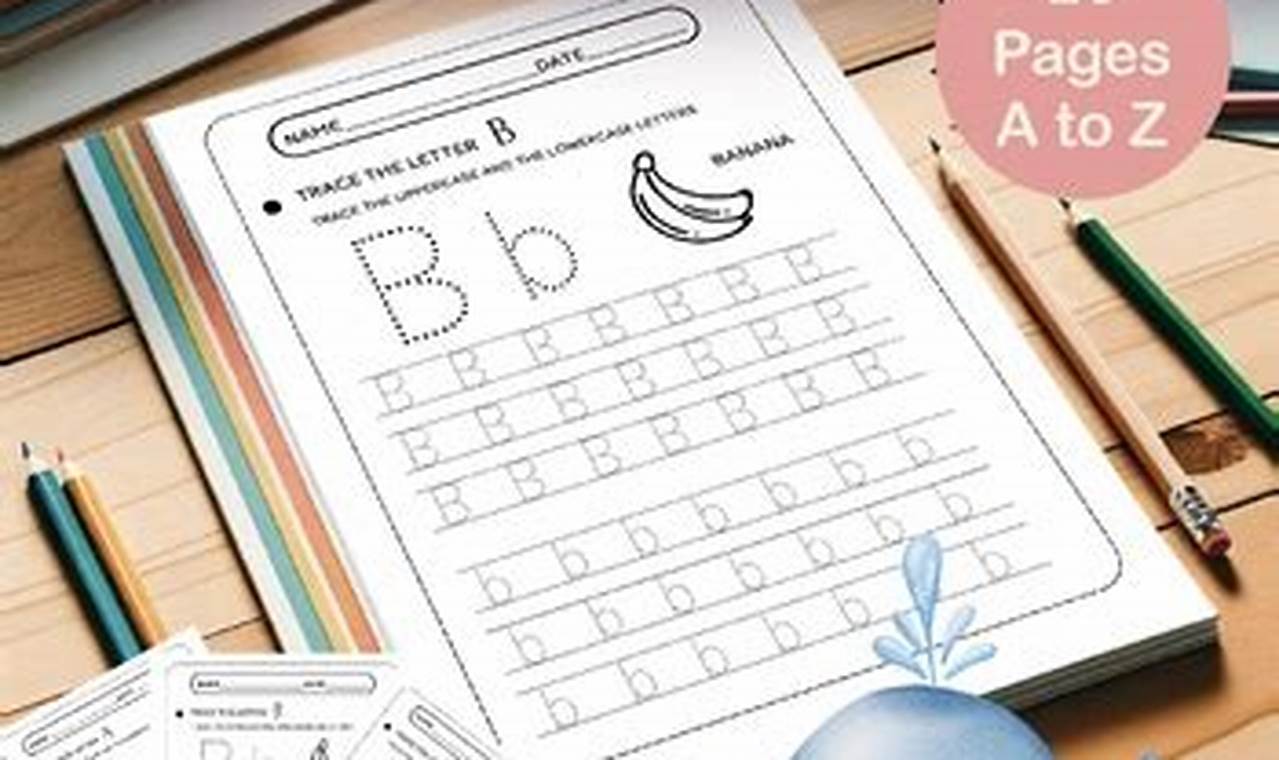Early literacy is a foundational skill, and mastering the alphabet is the crucial first step. An abc tracing workbook for early learners serves as an invaluable tool in this process, guiding children through the initial stages of letter recognition and formation. This workbook helps build the necessary fine motor skills and visual discrimination abilities that are essential for future reading and writing success.
The primary benefit of an abc tracing workbook for early learners lies in its ability to enhance letter recognition. By repeatedly tracing each letter, children begin to internalize the shape and form of both uppercase and lowercase letters. Furthermore, the controlled movements required for tracing contribute significantly to improved hand-eye coordination and fine motor control, skills necessary for holding a pencil correctly and writing legibly. The workbook also fosters pattern recognition as children learn to follow the lines and curves of each letter.
An abc tracing workbook for early learners typically includes a structured progression of activities. It generally begins with tracing individual uppercase and lowercase letters, often with directional arrows to guide proper stroke order. Many workbooks incorporate engaging illustrations associated with each letter (e.g., ‘A’ for apple, ‘B’ for ball), which aids in memorization and adds an element of fun. Spaces are also provided for independent practice, allowing children to apply what they have learned. Some workbooks may also include dotted lines or faded letters for children to trace, gradually reducing the level of assistance as they progress.
To use an abc tracing workbook for early learners effectively, begin by creating a comfortable and distraction-free learning environment. Encourage the child to hold the pencil with a relaxed grip. Start with the first letter and guide the child to trace along the lines, emphasizing the correct stroke order. If the child struggles, offer gentle assistance by holding their hand or providing verbal cues. Break the tracing tasks into manageable chunks to prevent fatigue and maintain engagement. Celebrate successes and offer encouragement throughout the process.
To reinforce learning beyond the abc tracing workbook for early learners, consider incorporating other alphabet-related activities. Explore alphabet books, sing alphabet songs, and engage in alphabet-based games. Kidtraces.com offers a variety of supplementary worksheets, including letter matching exercises and handwriting practice pages, to further support early literacy development. Daily activities, such as drawing letters in sand or forming them with playdough, can also make learning fun and interactive.
In conclusion, an abc tracing workbook for early learners is a powerful resource for developing foundational literacy skills. Its structured approach to letter recognition, coupled with the development of fine motor skills, provides a solid base for future reading and writing success. Download the workbook today and embark on a journey of learning and discovery. Explore more free worksheets on Kidtraces.com to continue supporting your child’s educational growth and skill development.
Images References :
Looking for more useful options?
Check out recommended resources that others find helpful.
